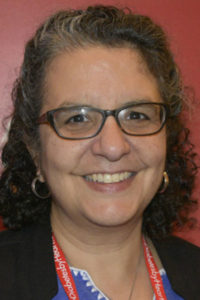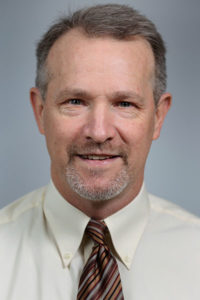
Three experts will summarize a year’s worth of discovery, innovation, and paradigm shifts in diabetes research and care during one of the most popular sessions each year at the Scientific Sessions. The Year in Review—Highlights of the Past Year in Basic, Translational, and Clinical Science will be presented at 8:00 a.m. CT on Sunday, June 5, in Great Hall A at the convention center.
“The treatment of diabetes has been evolving since insulin first came into clinical use 100 years ago,” said Linda A. DiMeglio, MD, MPH, who will review clinical science advances during the two-hour session. “This past year was no different with COVID-19 continuing to impact diabetes and diabetes care, including the use of telemedicine.”
Clinical trial results and a better understanding of the impact that health disparities have on diabetes patients have advanced care within the last year, said Dr. DiMeglio, Professor of Pediatrics, Indiana University School of Medicine.
“Our recognition and response to care disparities is going to be critical in the way people with diabetes get the care they need,” she said. “We are looking much more at meeting people with diabetes where they are, not where we are.”

A similar connection is taking place in translational science, which is emerging as a nexus between the bench and bedside, said David A. D’Alessio, MD, Professor of Medicine and Chief of Endocrinology and Metabolism, Duke University School of Medicine. Questions, information, and results flow in both directions, he said.
“There has been a major impact of SGLT2 (sodium-glucose cotransporter-2) inhibitors and all the benefits they have in people with heart failure and kidney disease, with or without diabetes,” Dr. D’Alessio explained. “We still have very little idea as to how these drugs target specific cells in the kidney to confer systemic benefit. If we knew how SGLT2 inhibitors work, we might find they are just the last step in a powerful regulatory connection between the kidney and the heart. Understanding the mechanisms at work would allow us to use drugs smarter and more effectively, and target patients who benefit most.”

The session’s final speaker Silvia Corvera, MD, Professor and Endowed Chair in Diabetes Research, University of Massachusetts Medical School, will review basic science advances from the past year.
“Single-cell sequencing has provided important advances in understanding cellular composition and molecular pathways in tissues that are metabolically relevant in diabetes,” Dr. Corvera said. “Previously, we have been able to take a chunk of tissue—be it pancreatic islet, adipose tissue, liver, etc.—and look at all the expressed genes. But we had no way to know which of the many types of cells in that tissue were expressing which genes. Single-cell sequencing lets us look at each cell type and figure out what it is doing at the transcriptional level. We are seeing potential pathogenic mechanisms that we never had insight into before.”
Evolving research into induced pluripotent stem cells is also making waves. Reports of implanting beta cells induced from pluripotent stem cells recently made global headlines and advances in cell therapies are an exciting new frontier, Corvera said.
“The three of us will summarize what has been published in the past year within the context of our own field,” she said. “We all know the questions: What is the disease, how do we stop it, how do we cure it, how do we prevent it? Research on every level is moving us closer to answers.”
[sub-post-content]